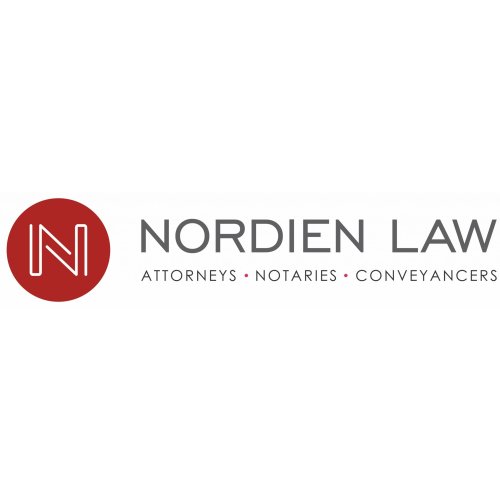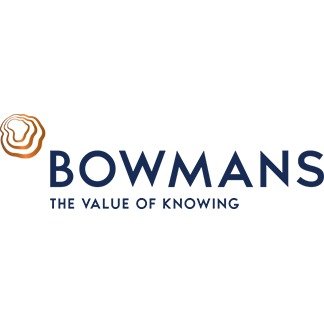Best Public-Private Partnerships (PPP) Lawyers in Cape Town
Share your needs with us, get contacted by law firms.
Free. Takes 2 min.
List of the best lawyers in Cape Town, South Africa
About Public-Private Partnerships (PPP) Law in Cape Town, South Africa
Public-Private Partnerships (PPP) refer to agreements where the public sector (typically government entities) and the private sector collaborate to finance, build, and operate projects such as public infrastructure, services, or facilities. In Cape Town, as in the rest of South Africa, PPPs are used to deliver large-scale development projects more efficiently by combining public oversight with private sector expertise and resources. These partnerships can range from water supply systems and transportation facilities to schools, hospitals, and energy projects. The legal landscape around PPPs is highly regulated to ensure transparency, value for money, and the accountability of all parties involved.
Why You May Need a Lawyer
Engaging in a PPP can be complex, involving a range of legal, financial, and operational challenges. People and businesses may require a lawyer for several reasons:
- Drafting, reviewing, and negotiating PPP contracts and agreements - Understanding and ensuring compliance with regulatory requirements - Managing risks associated with contracts, funding, and governance - Addressing disputes or disagreements between public and private entities - Advising on tax implications and financial structuring - Guiding on procurement, tender processes, and legal due diligence - Facilitating approvals with authorities and regulatory bodies - Protecting intellectual property and proprietary information - Ensuring alignment with government objectives and community needs - Advising foreign investors or new entrants on local partnership frameworks
Local Laws Overview
PPPs in Cape Town are primarily regulated under national frameworks, with specific local policies and requirements applying. Key legal elements include:
- The Public Finance Management Act (PFMA) and Municipal Finance Management Act (MFMA), laying out how public entities must manage PPP projects - The National Treasury PPP Manual and Standardized PPP Provisions, offering detailed procedural guidelines - Local bylaws or municipal policies that provide further requirements for PPPs involving the City of Cape Town - Procurement laws mandating fair, transparent, and competitive bidding processes - Provisions for risk sharing, payment structures, performance guarantees, and dispute resolution - Requirements for public consultation and environmental approvals - Adherence to Black Economic Empowerment (BEE) policies and Local Content requirements - Compliance with contractual, tax, and labor laws that impact project operation and handover
Every PPP in Cape Town must align with national and provincial policies to ensure both public interest and private sector innovation are protected.
Frequently Asked Questions
What is a Public-Private Partnership (PPP)?
A PPP is a collaborative agreement between government agencies and private sector entities to deliver infrastructure, public services, or projects that benefit from shared risks, rewards, and responsibilities.
What types of projects typically use PPPs in Cape Town?
Projects often include water and wastewater management, transportation systems, energy generation, affordable housing, healthcare facilities, schools, and tourism infrastructure.
Who regulates PPPs in Cape Town?
Both national and local authorities regulate PPPs. The National Treasury sets guidelines, while the City of Cape Town enforces municipal-level requirements. The Western Cape provincial government may also play a role.
What laws must PPPs comply with in South Africa?
Relevant laws include the Public Finance Management Act, Municipal Finance Management Act, National Treasury regulations, procurement laws, and local municipal bylaws.
Is public consultation required before a PPP project is approved?
Yes, most PPP projects require public participation to ensure community needs are met and concerns are addressed before a partnership is finalized.
How are risks shared in PPP agreements?
Risks are allocated based on which party is best placed to manage them. Common risk categories include construction, financial, operational, legal, and political risks.
Can foreign companies participate in Cape Town PPPs?
Yes, but they must comply with South African law, local content regulations, and often form joint ventures or consortia with local firms to satisfy BEE and empowerment requirements.
How are PPP contracts awarded?
Contracts are typically awarded through a competitive tender process to ensure transparency, fairness, and value for money for the public sector.
What are the main financial considerations in a PPP?
Financial considerations include funding sources, payment models, revenue-sharing mechanisms, guarantees, and the cost-benefit analysis of private sector involvement.
What should I do if a dispute arises in a PPP project?
Consult an experienced PPP lawyer immediately. Disputes are generally resolved through contractual dispute resolution mechanisms, such as mediation or arbitration, or, if necessary, through litigation.
Additional Resources
- South African National Treasury PPP Unit - City of Cape Town - Directorate of Economic Growth - Western Cape Government Department of Economic Development and Tourism - Construction Industry Development Board (CIDB) - South African Local Government Association (SALGA) - South African Institution of Civil Engineering (SAICE) for technical standards - Legal Aid South Africa for primary legal advice These entities provide guidelines, documentation, advice, and sometimes formal support for PPP projects in Cape Town.
Next Steps
If you are considering entering a Public-Private Partnership or need legal advice regarding an existing PPP in Cape Town, begin by documenting your objectives and concerns. Next, identify the stage of your PPP project and gather all relevant agreements or correspondence. When ready, reach out to a qualified legal professional or firm with experience in PPP law and municipal regulations. An initial consultation can help assess your legal needs and outline the best path forward. Engage with appropriate government bodies early, and ensure all documentation is prepared in line with the required regulatory frameworks to streamline approvals and safeguard your interests.
Lawzana helps you find the best lawyers and law firms in Cape Town through a curated and pre-screened list of qualified legal professionals. Our platform offers rankings and detailed profiles of attorneys and law firms, allowing you to compare based on practice areas, including Public-Private Partnerships (PPP), experience, and client feedback.
Each profile includes a description of the firm's areas of practice, client reviews, team members and partners, year of establishment, spoken languages, office locations, contact information, social media presence, and any published articles or resources. Most firms on our platform speak English and are experienced in both local and international legal matters.
Get a quote from top-rated law firms in Cape Town, South Africa — quickly, securely, and without unnecessary hassle.
Disclaimer:
The information provided on this page is for general informational purposes only and does not constitute legal advice. While we strive to ensure the accuracy and relevance of the content, legal information may change over time, and interpretations of the law can vary. You should always consult with a qualified legal professional for advice specific to your situation.
We disclaim all liability for actions taken or not taken based on the content of this page. If you believe any information is incorrect or outdated, please contact us, and we will review and update it where appropriate.















